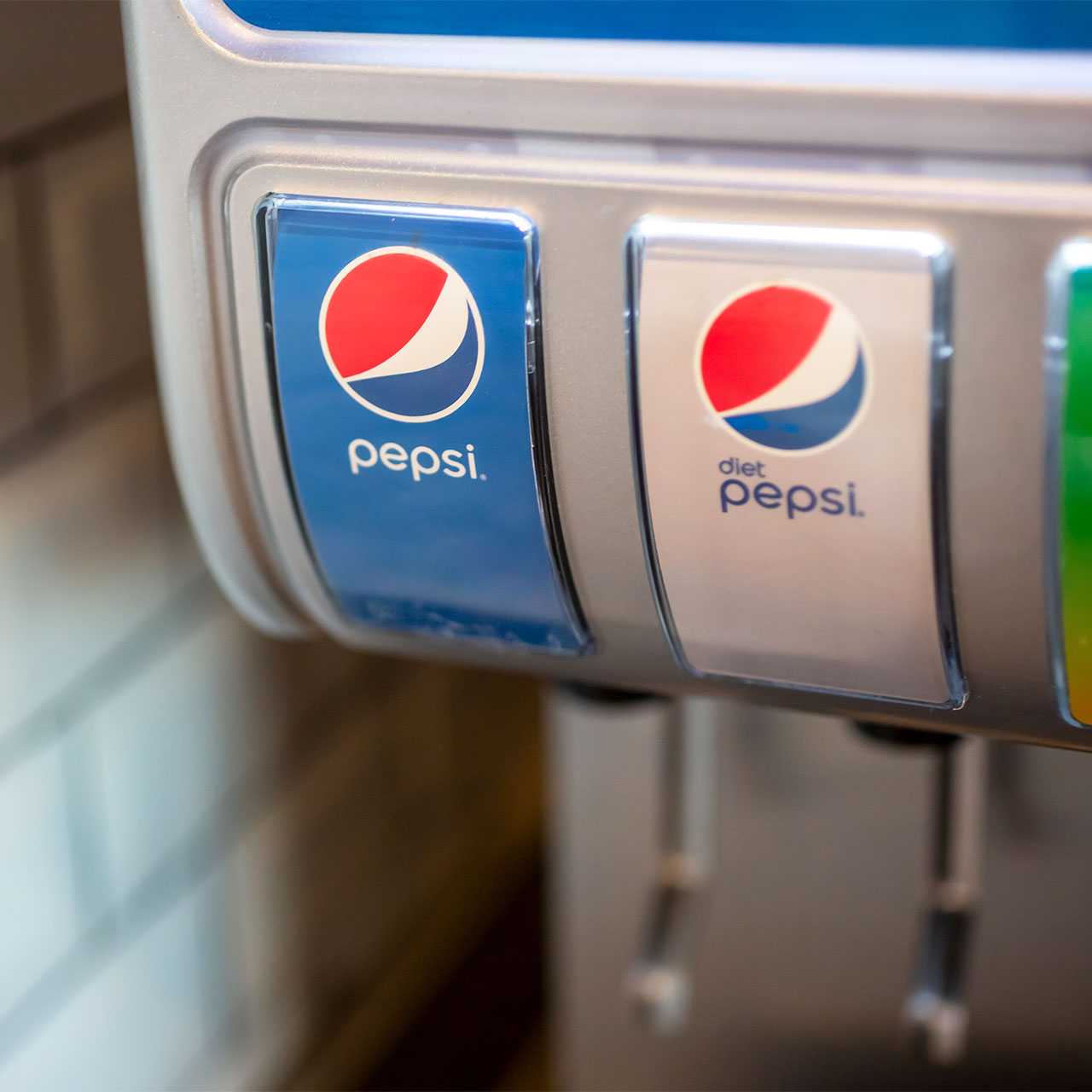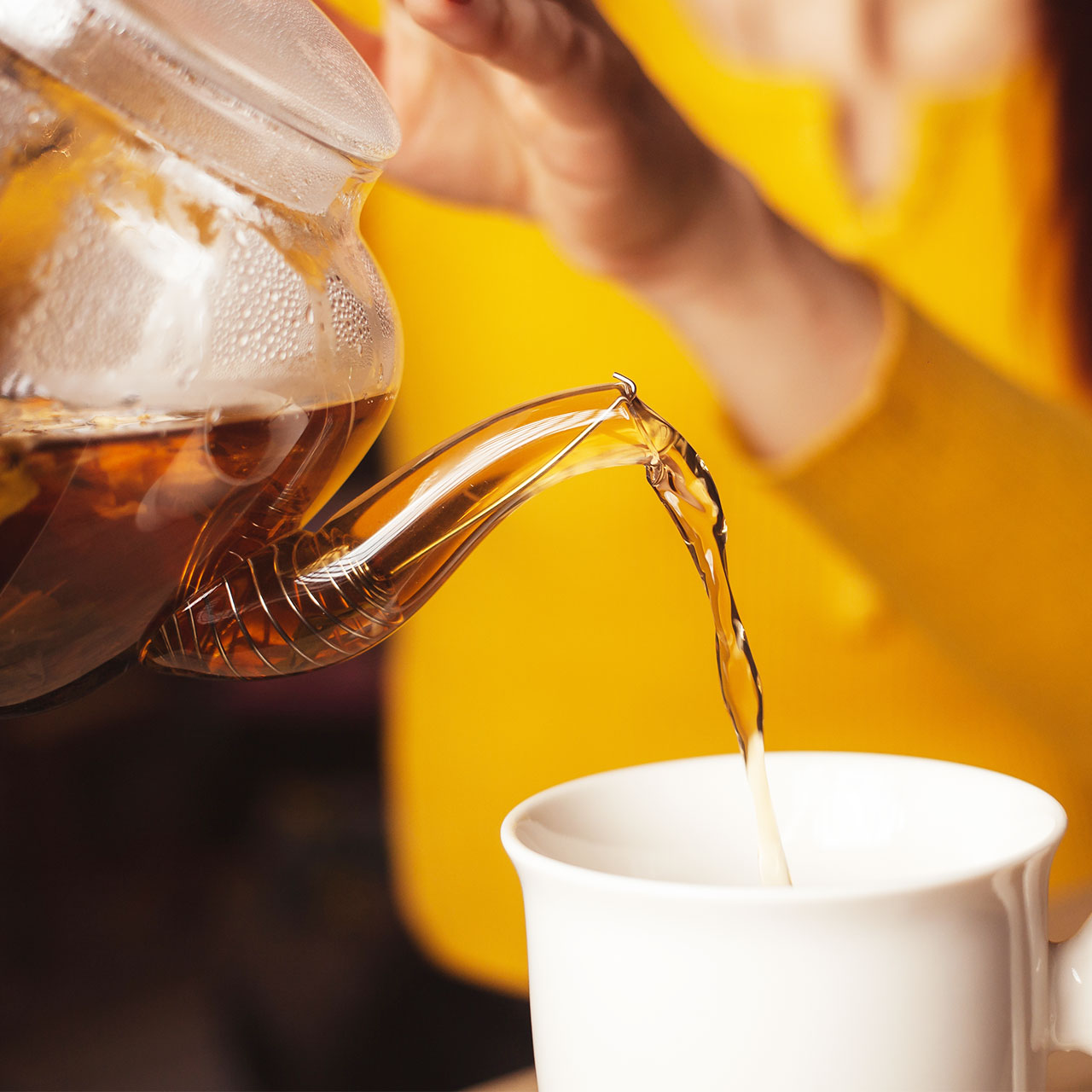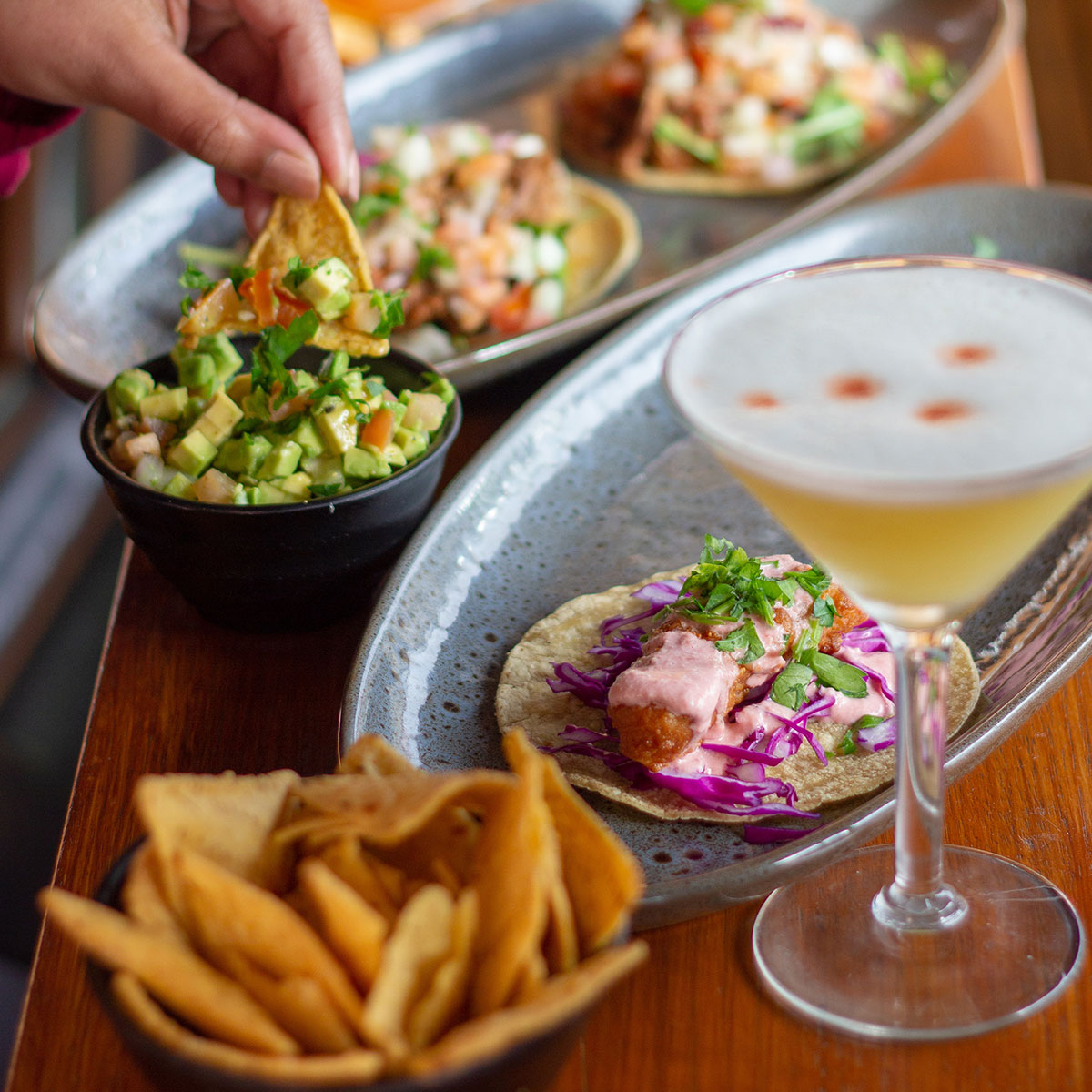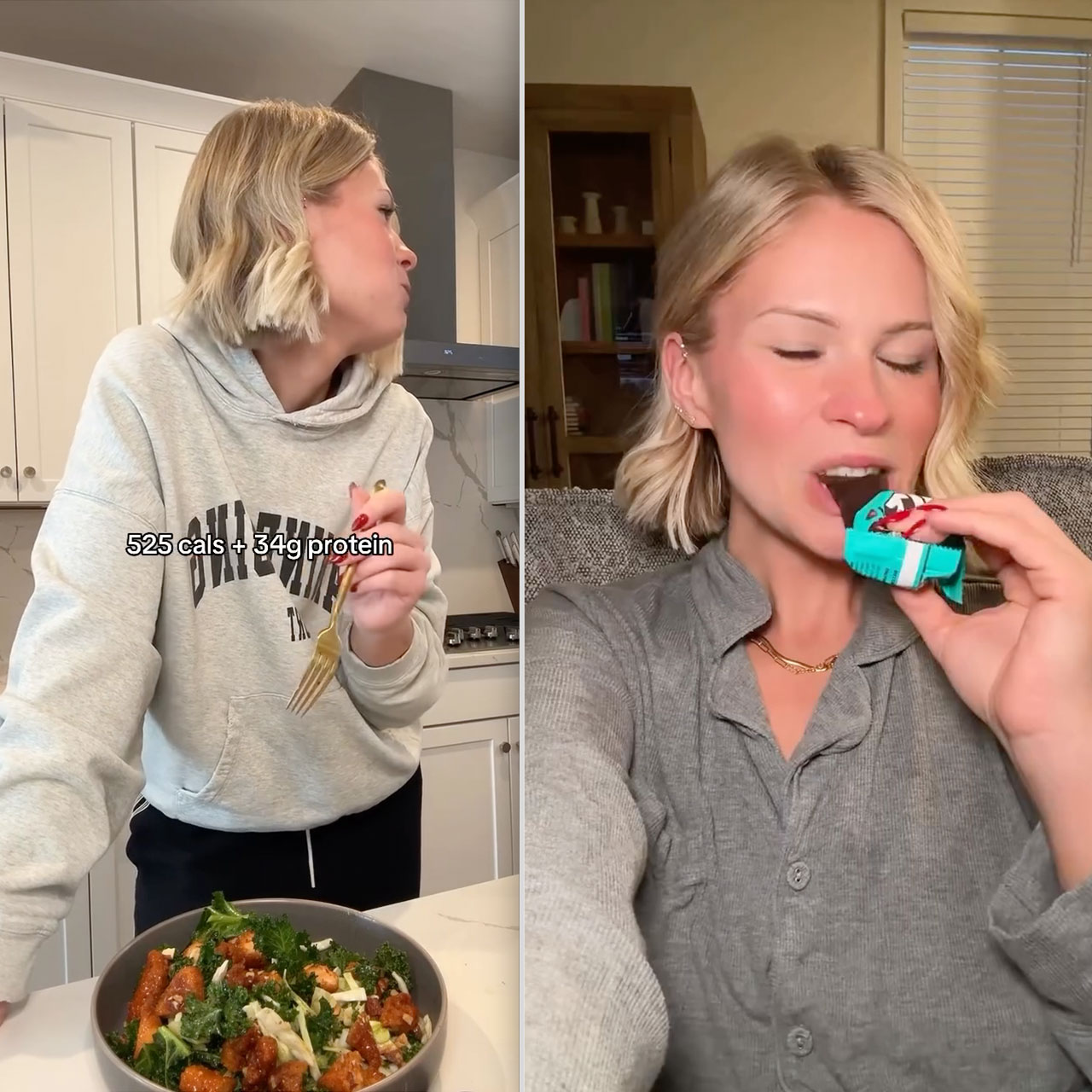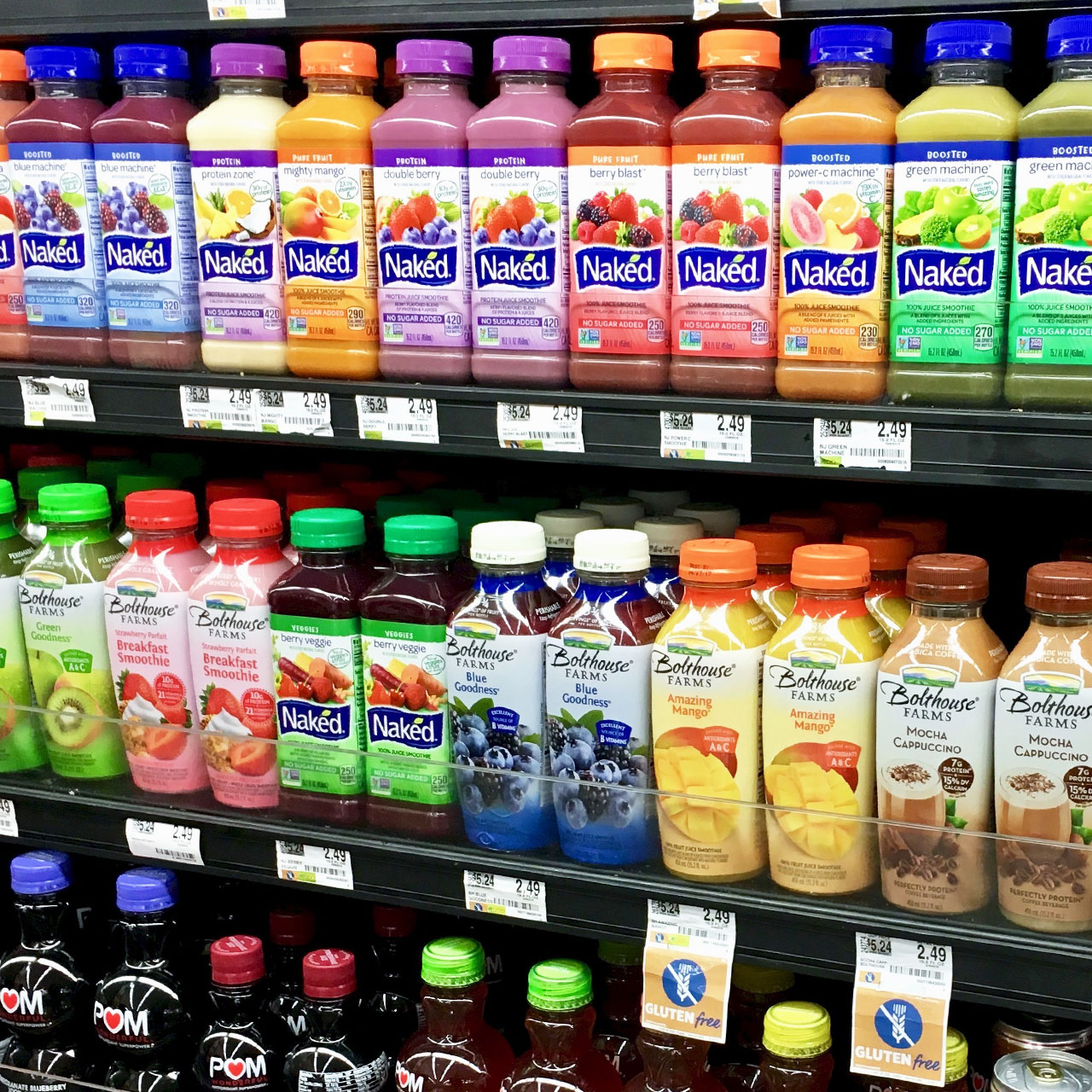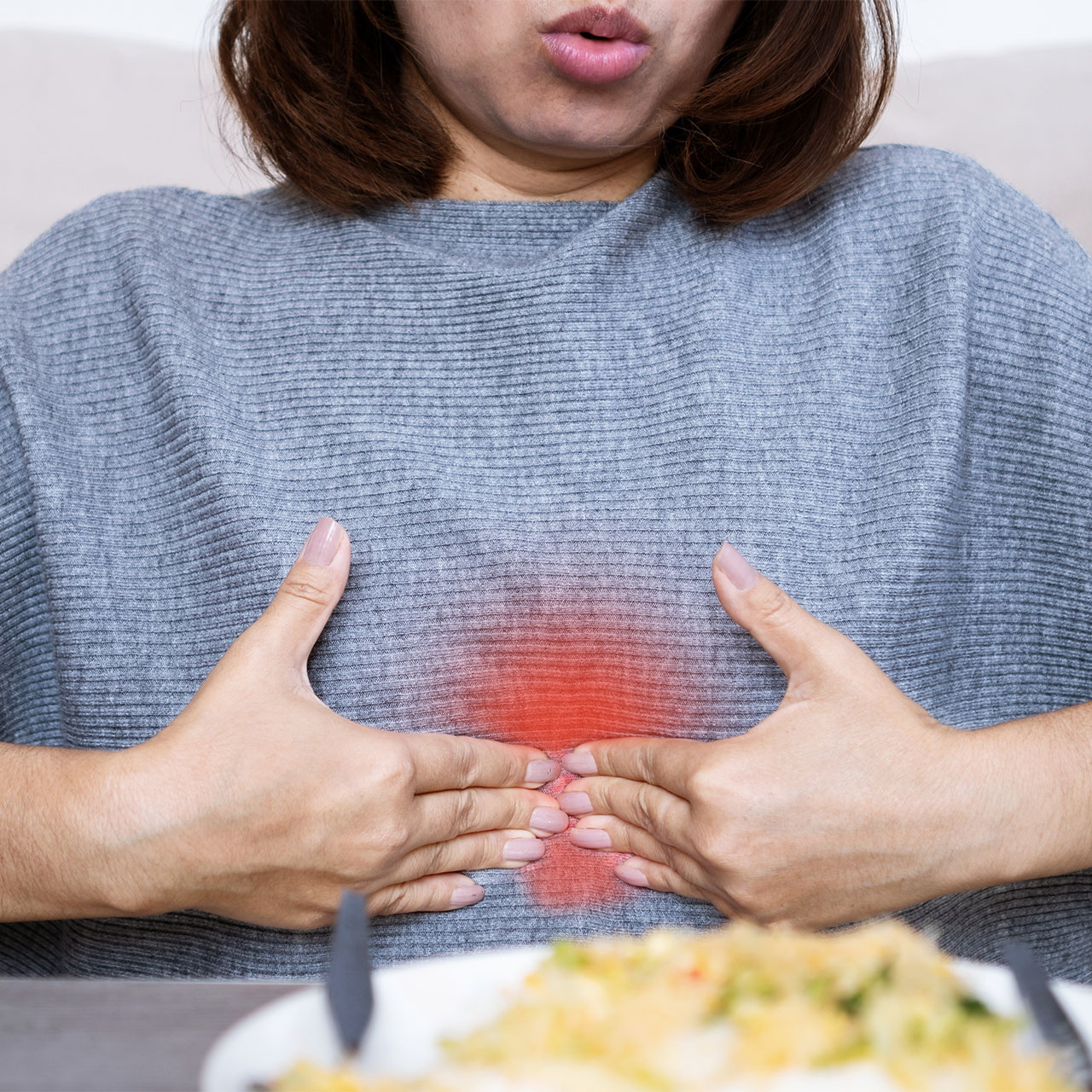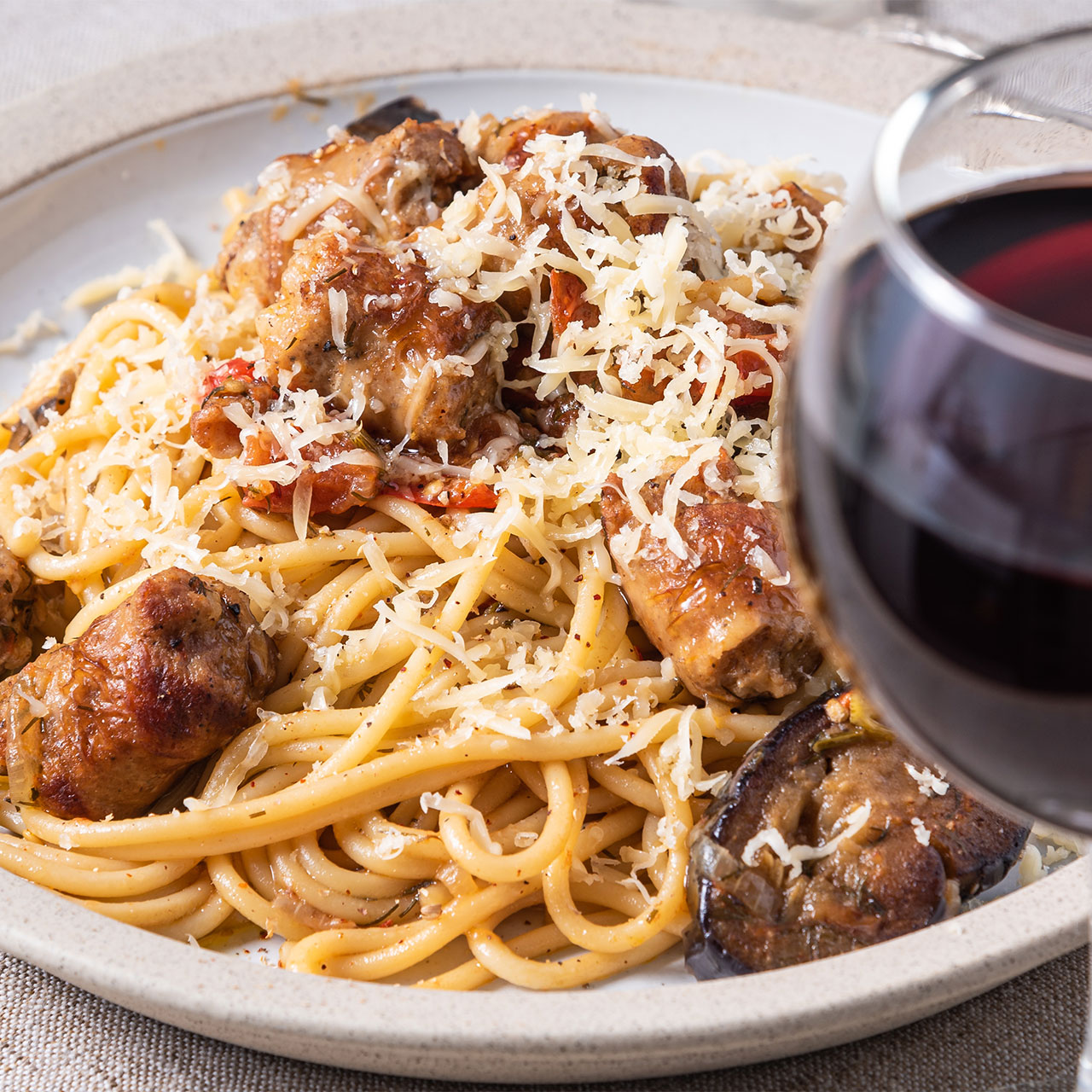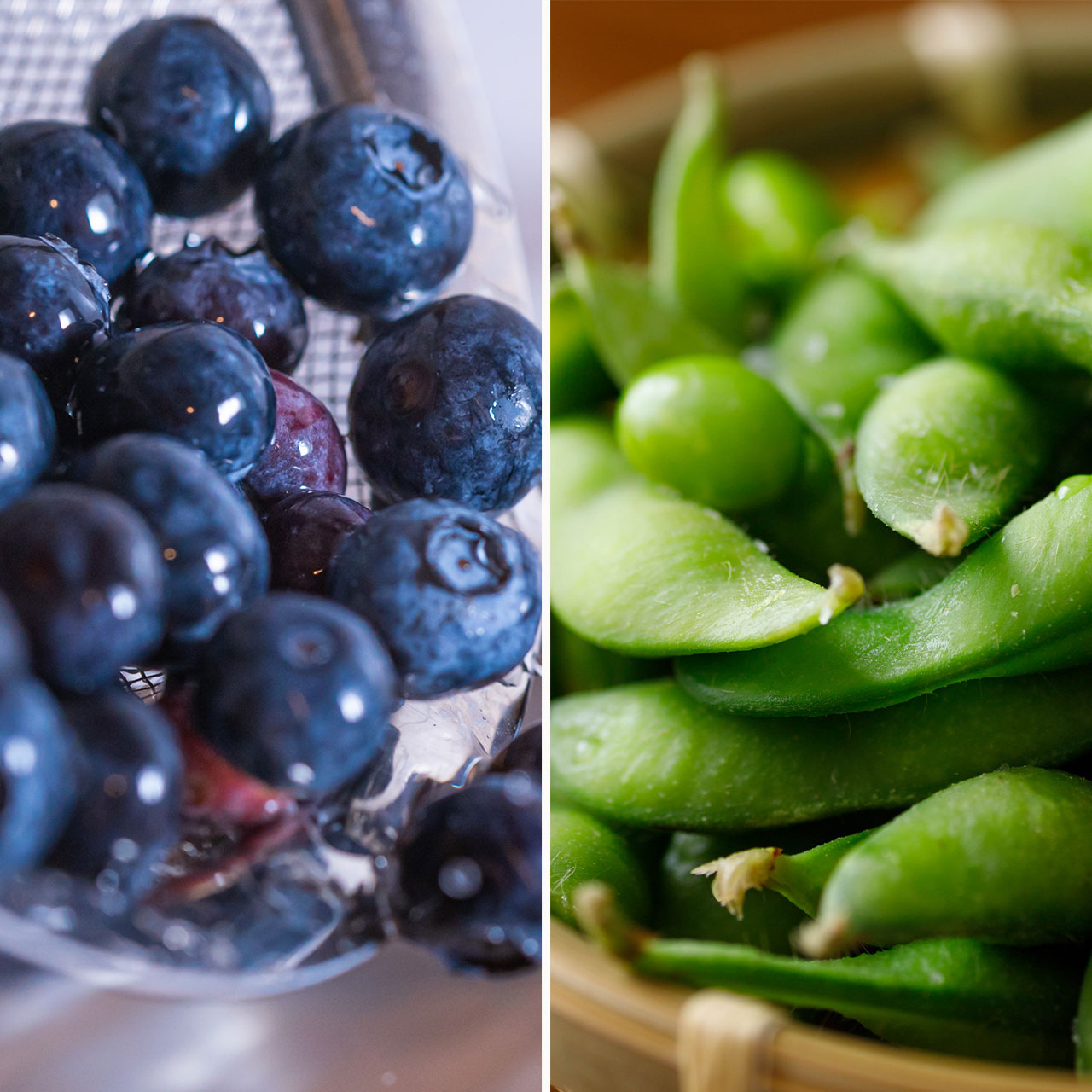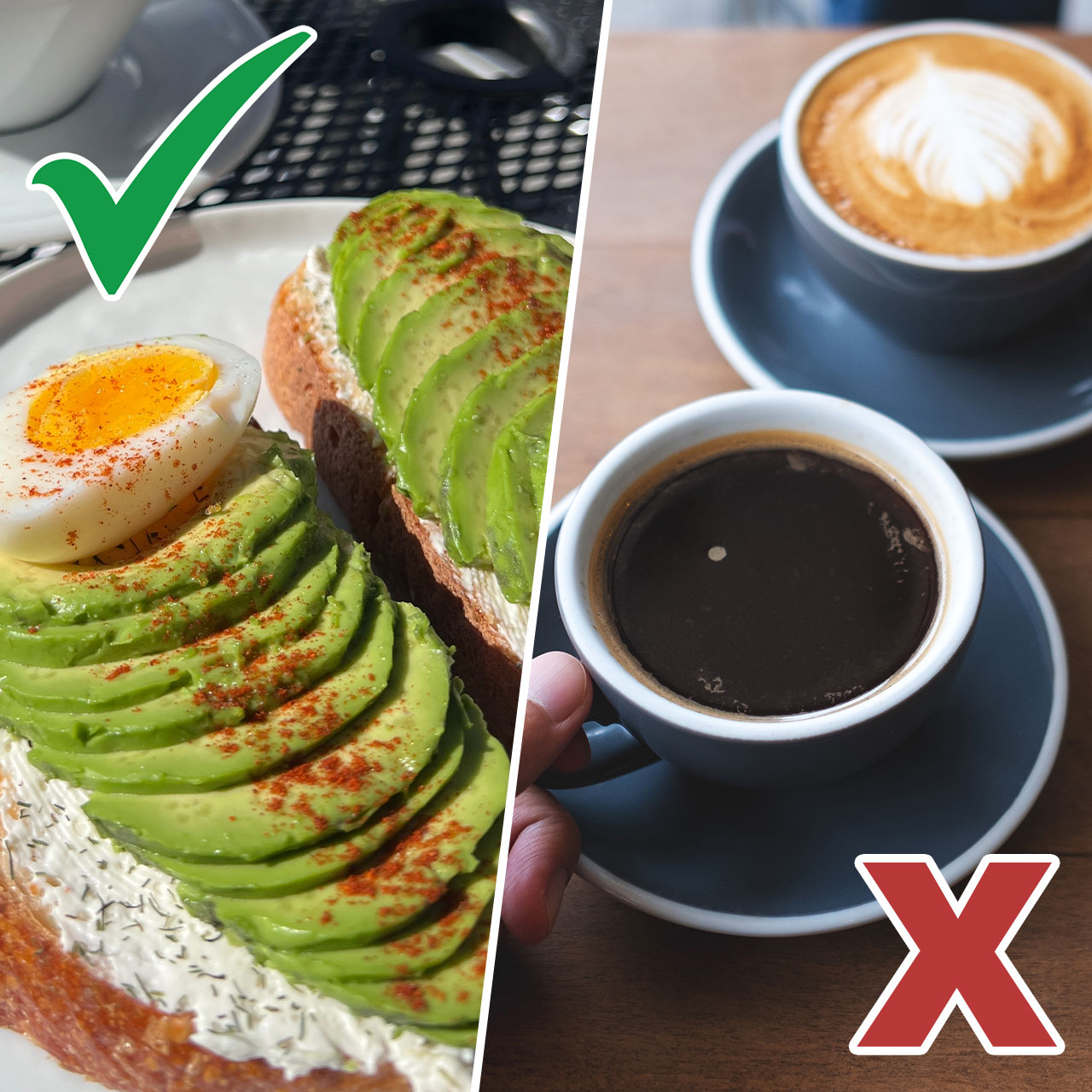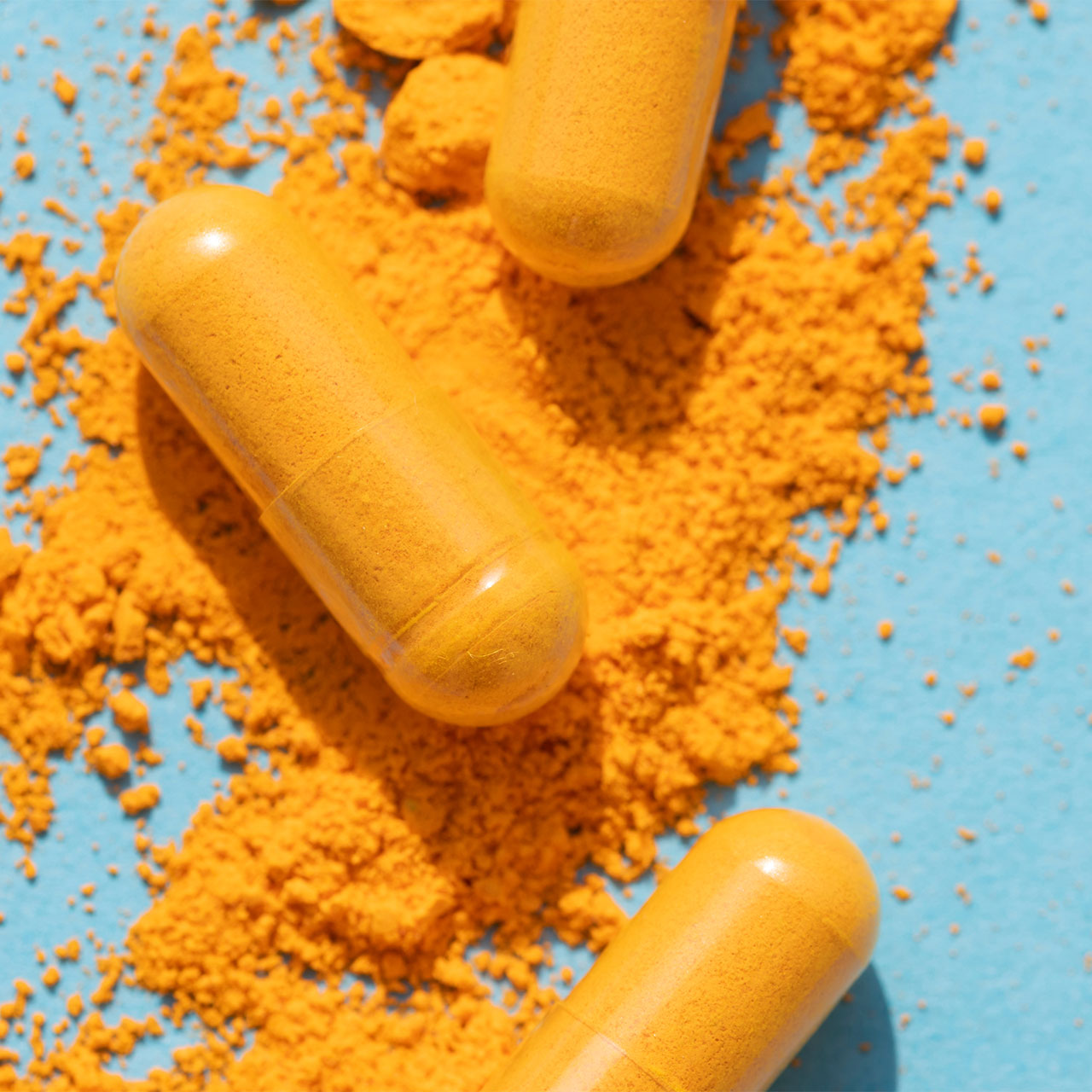Getting a good night’s sleep is essential for our physical and mental health, and what we eat before bed can greatly impact the quality of our sleep. While some foods may help promote better sleep, others can disrupt it. In fact, there are a few foods and beverages sleep experts recommend avoiding before bed if you want a restful sleep.
To discover some of the worst culprits out there, we checked in sleep expert Chester Wu, M.D. He told us that spicy, fatty, and rich foods, as well as caffeine and alcohol should be limited as much as possible at dinner in order to promote a better sleep. Learn more about how these things can affect your ability to sleep through the night below.
READ MORE: The Brain-Healthy Habits Health And Food Experts Swear By For A Sharper Mind And Better Sleep

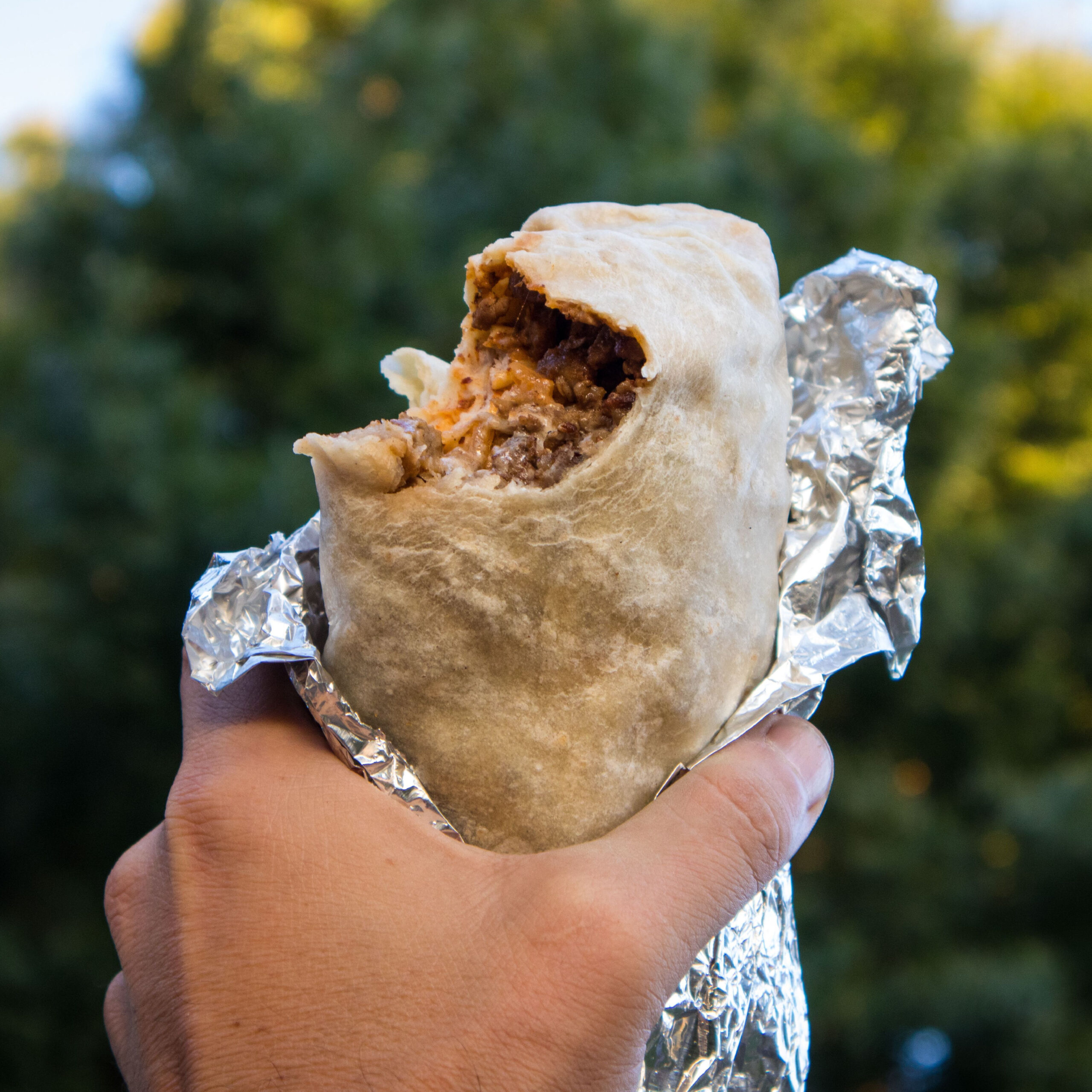
1. Spicy, fatty, and rich foods
While you may enjoy indulging in a decadent meal every now and then, Dr. Wu warns that spicy, fatty, and rich foods are some of the worst culprits of a poor night's sleep. If you struggle with insomnia or frequently wake up in the middle of night, it's best to avoid these types of dinners.
"They’re a common trigger for digestive issues like indigestion, acid reflux, and irritable bowel syndrome, all of which can easily keep you up at night," he warns. Here are some of the worst foods to avoid for heartburn.
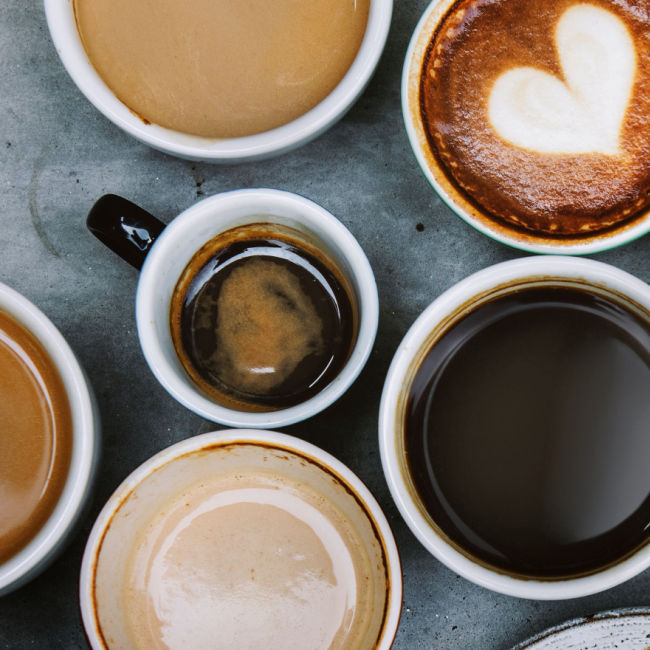
2. Avoid caffeine
It's probably not surprising to hear that drinking caffeine before bed isn't the best idea of a restful sleep is your goal. However, Dr. Wu emphasizes the fact that the effects of caffeine may be longer-lasting than you think—which means that not only should you avoid a bit of espresso with your dessert, but you may also want to cut out coffee altogether if you want to sleep as well as possible.
"It’s important to note that caffeine remains in our system for upwards of 12 hours after you drink it," he says. But coffee isn't the only issue. "Apart from coffee, be mindful of the caffeine present in tea, chocolate, decaf coffee, and energy drinks," he reminds us. Got it!
READ MORE: 3 Sugary, Caffeinated Drinks Nutritionists Warn Can Ruin Your Metabolism
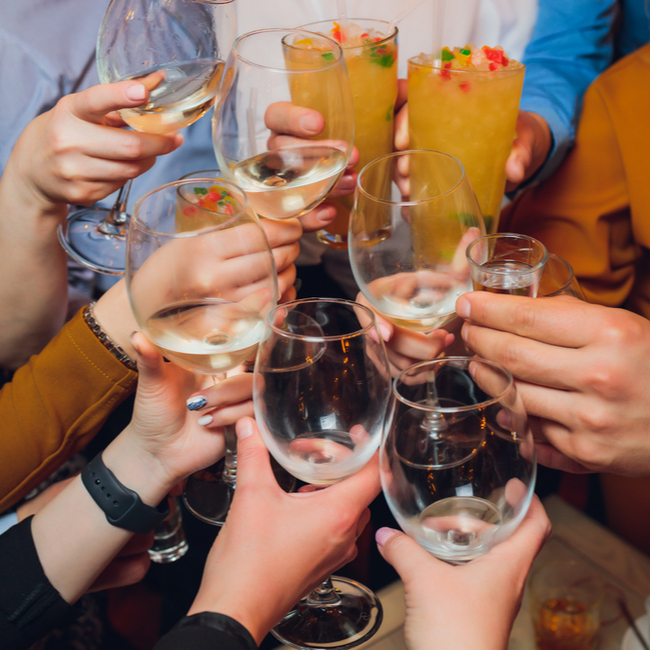
3. Alcohol
Many people like to unwind by a glass of wine or two with dinner. However, Dr. Wu tells us that drinking alcohol too close to bed can disrupt your sleep. He recommends not drinking any alcohol for at least a few hours before you hit the hay.
"Cutting off alcohol 2-3 hours before bed gives you a better chance of better sleep, but even better is no alcohol at all!" Dr. Wu suggests. "Despite the initial drowsiness it may cause, alcohol tends to disrupt your sleep, leading to frequent awakenings throughout the night. It can also inhibit rapid eye movement (REM) sleep, which is crucial for memory consolidation and emotional regulation."
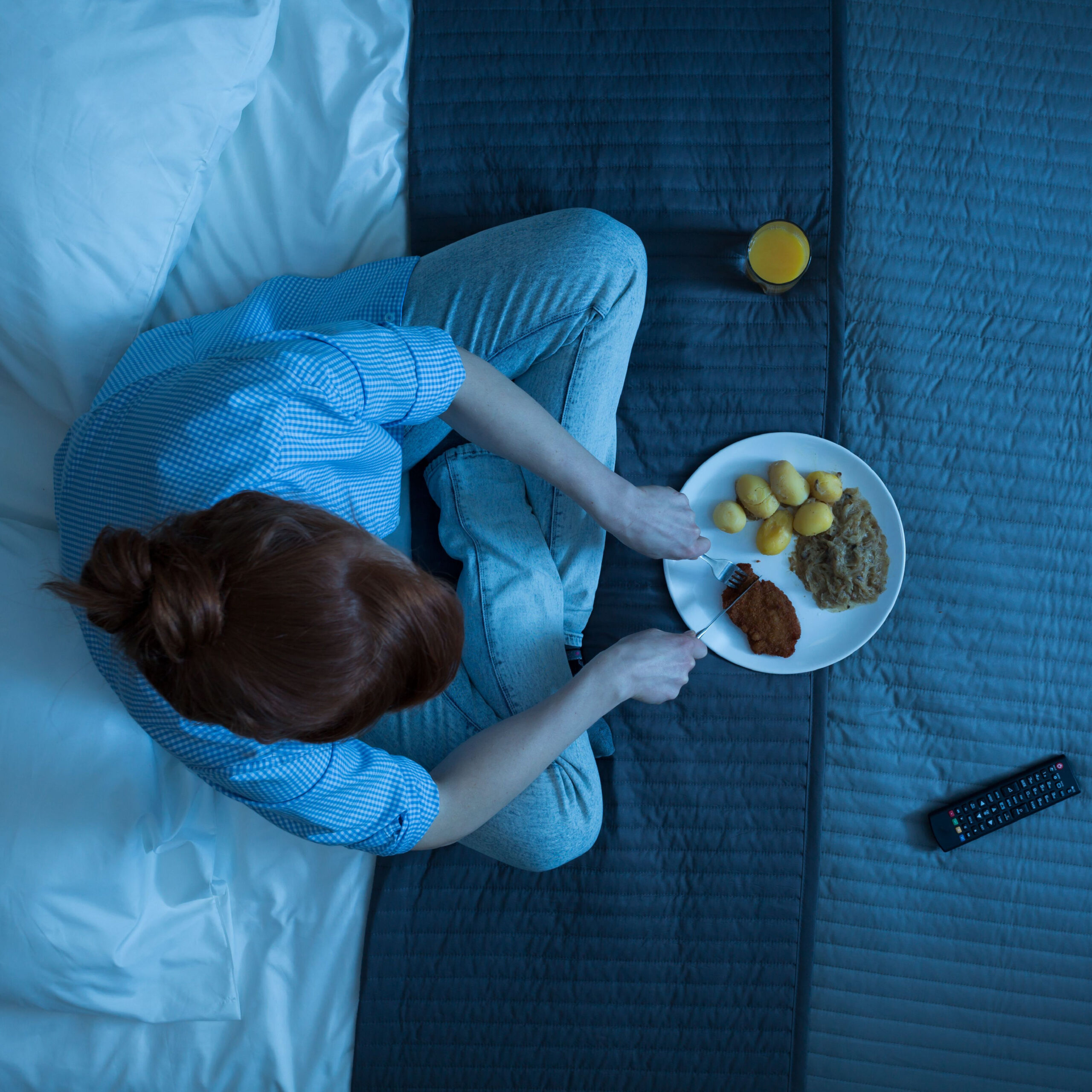
Other factors to keep in mind
In addition to what you eat, Dr. Wu says that when you eat, and how much, can also play a role in the quality of your sleep. Eating too close to bedtime can lead to acid reflux, slowed digestion, a disruption in your body's biological clock, and more. For all of these reasons, he recommends eating dinner at least 2-3 hours before bed, and anything after that should only be limited to a light snack.
"Be mindful of the amount of food you’re eating in the hour+ before bed," he says. "Although there is no defined quantity of food that makes it difficult to sleep, limit late-evening meals or snacks to less than 600 calories to minimize the possibility of them hindering your sleep." You can read more about the effects of eating a large meal before bed here.
Additionally, you should keep in mind that your overall diet can impact your sleep. Dr. Wu warns against excessive consumption of saturated fat and carbohydrates.
"Your overall diet plays a critical role in determining your weight, which can also affect your sleep in various ways," he says. "Being overweight can increase the likelihood of developing sleep apnea. It can result in snoring, which not only disrupts your sleep but also disturbs the sleep of those around you who can hear it."
The bottom line
While many factors play into the quality of your sleep, your diet is one key component. In addition to limiting your intake of rich, fatty, spicy foods; alcohol; and caffeine, paying attention to when you're eating dinner as well as maintaining a healthy diet overall is one good way to ensure a better night's rest. When you make these changes to your diet, you'll be one step closer to great sleep—a better health overall.



